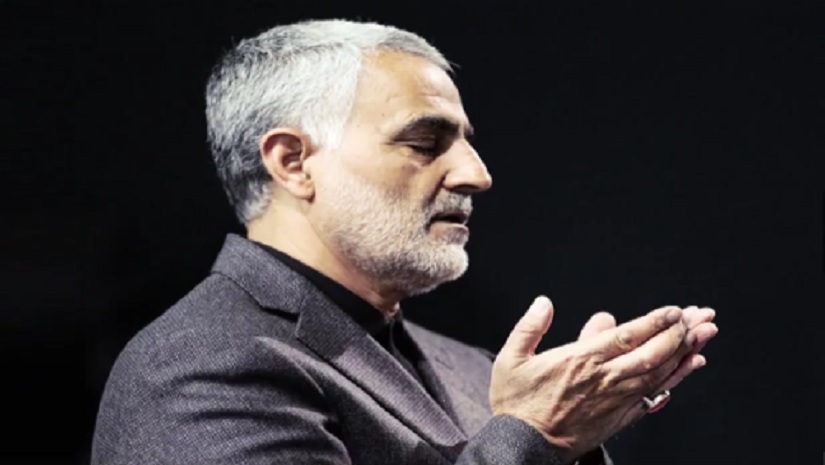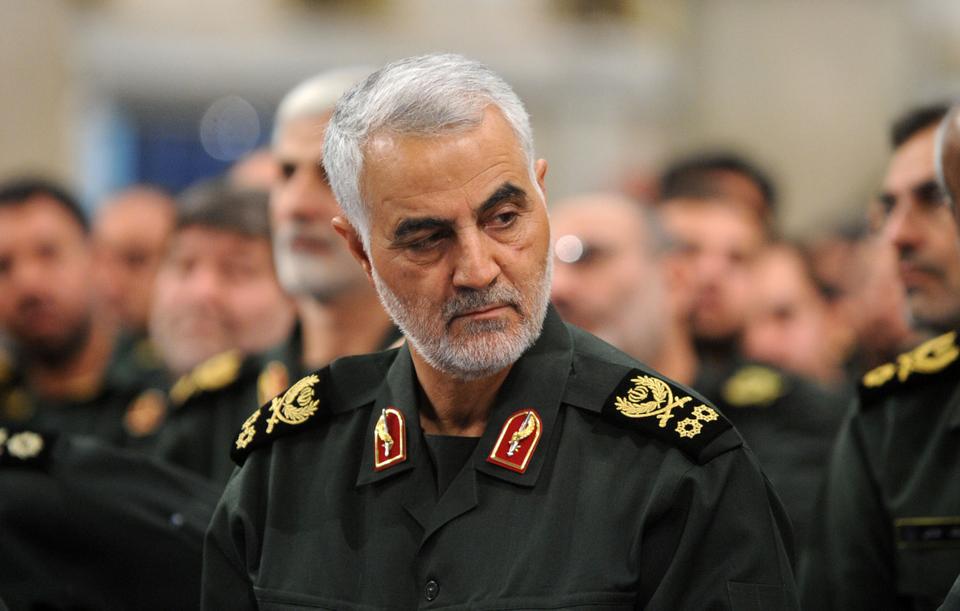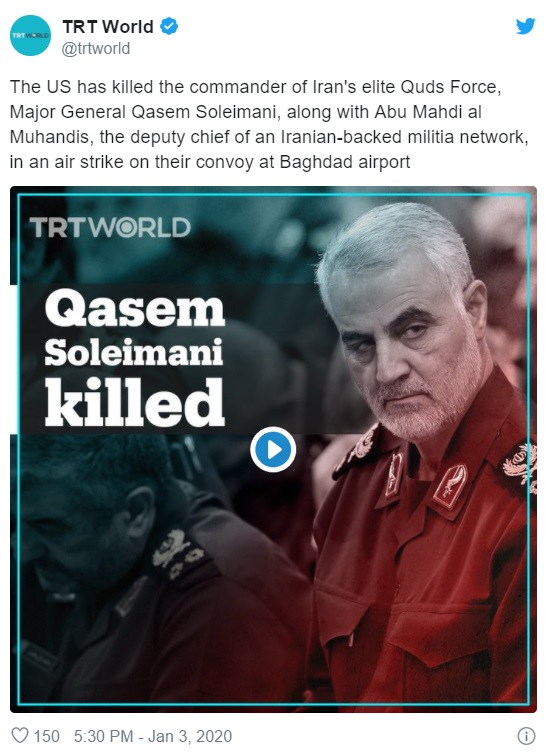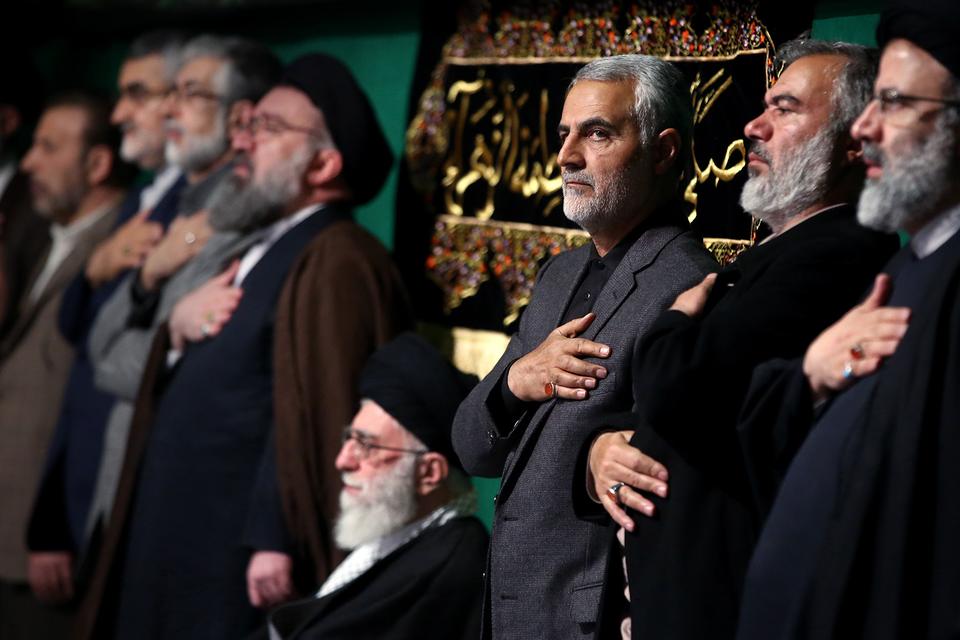Why was Qasem Soleimani so vital for Iran?
- Nayadiganta English Desk
- 04 January 2020, 00:02

Qasem Soleimani's death is a major blow to Iran's regional ambitions as the self-contained general was at the forefront of tilting the Middle East in Tehran's favour.
For Iran, Major General Qasem Soleimani was a figure of national resilience in the face of four decades of United State (US) pressure.
On the other hand, he was a shadowy leader of Iran's geopolitical ambitions, which aimed at expanding the Shia power's arc of influence, or so-called “axis of resistance” from Iraq, Syria, Lebanon to the eastern shores of the Mediterranean Sea.
“You should know that I, Qasem Soleimani, control the policy for Iran with respect to Iraq, Lebanon, Gaza and Afghanistan,” Soleimani reportedly told US General David Petraeus over the phone in 2008, when Patreaus was deployed in Iraq as a commander of the US army.
As Soleimani was killed on Friday morning in a US airstrike at Baghdad’s international airport, it marked one of the most dramatic episodes of the Iran-US rivalry.
Born in 1957, Soleimani’s career began soon after Iran’s 1979 Revolution, which swept the Shah of Iran from power. Young Soleimani joined the Revolutionary Guard amidst the tense political climate.
Soon after, as Iran was gripped by a bloody eight-year war with neighbouring Iraq that killed one million people, Soleimani was part of the lightly armed troops who were sent to the frontlines of war.

Back then, Soleimani led an Iranian elite force known as Thar Allah 41 corps in Kerman city during the eight-year war.
As the Revolutionary Guard gained significant political and economic power from the war, some Iranian militias were formalised as what became known as the Quds Force. Soleimani rose through the ranks of the Quds Force and eventually headed it in the late 1990s.
Following the war, he was promoted to be among the best 10 military commanders of Iranian contingents spread across the borders with Iraq.
As a leader of the Quds, Soleimani cultivated support across the Middle East, allying with Iraqi Shiites who were against Saddam Hussein's rule as well as expanding Tehran’s influence in Lebanon through proxy militia, Hezbollah.

Soleimani, a discreet man, came to the attention of the US following the 2003 American invasion of Iraq.
His Quds Force gave military and economic support to Iraqi Shiite militias as they fought against American troops.
According to a recent Pentagon estimate, Iranian proxy forces killed at least 608 US troops in Iraq between 2003 and 2011.

In 2007, the US declared the Quds Force, which had 20,000 members spread across the Middle East, as a terrorist group, and Soleimani was also described as a "terrorist and supporter of terrorism".
He shot to international fame after the Syrian civil war. He became the public face of Iran’s intervention in Syria, as many began to see him as the saviour of the Assad regime.
He was sent to Syria personally several times, appearing in battlefield photos and documentaries.
But while he has become a national pride in Iran and his flak jacket a fashion statement, Soleimani and his militias have also been accused of mass killings, torture, and forcing thousands to flee Syria.
“Soleimani has taught us that death is the beginning of life, not the end of life”, one Iraqi militia commander said.
In recent years, however, as US President Donald Trump pulled the US out of the 2015 nuclear deal between Iran and the Western bloc, Soleimani and his militias have increasingly become a source of tensions between the US and Iran.
Recently, after a US contractor was killed in late December, US forces launched airstrikes against Iran-backed Kataib Hezbollah, killing 25 of its members and injuring more than 50.
On New Year’s Eve, Shiite militias and their supporters stormed the US Embassy compound in Baghdad. Though no one was killed in the chaos, Trump warned that Iran bore responsibility for the act. “They will be held fully responsible,” he tweeted.
The incident brought back bad memories of 1979 when the US embassy in Iran was stormed by Iranian students and 60 Americans inside were taken as hostages for more than a year.
Soleimani was seen as an important and irreplaceable figure by the Iranian regime.
As his death has sent shock waves across the entire Middle East, his killing will most likely be a game-changer in the region, as many experts have voiced concerns about the possible outbreak of yet another proxy war in Iraq. (Source: TRT World)
Kamruzzaman
More News
-
- ৫ঃ ৪০
- খেলা

